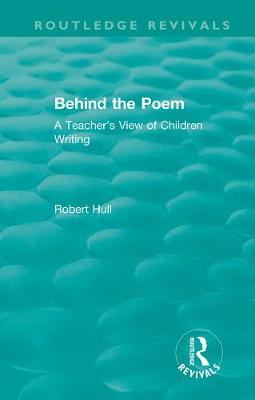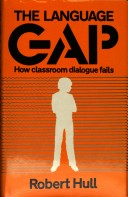Routledge Revivals
2 total works
Published in 1988, this book is a teacher’s eye view of how children come to write and rewrite poems, and of how they make aesthetic choices in their writing. Drawing on over twenty years’ experience of teaching poetry in primary and secondary schools, Robert Hull presents a detailed account of the process of writing poetry in the classroom. The reader is invited, almost in confidence, to be witness to a skilled teacher’s planning, recognition, and definition of children’s emergent understanding and expertise. The author adopts a non-behaviourist model which stresses difficulty and uncertainty, rejecting a simplistic assumption of linear progression, predictability of outcome, and short-term results. The many examples of poems written by the children demonstrate in a very vivid and impressive way the value of this approach. All teachers, not just of poetry, will find this a fascinating and informed study, and an inspiration for their own work in the classroom.
Published in 1985. Dialogue between teacher and pupil is a crucial factor in the learning experience. This book questions the role of language as a 'natural' vehicle for learning and considers how it may, in fact, hinder communication. In a detailed examination of day-to-day language practices across a range of subjects, including English, History, Maths and Remedial teaching, in a particular comprehensive school, Robert Hull develops a powerful and coherent critique of the closed and limiting nature of the language employed by classroom teachers. By analysing the texts of school knowledge - worksheets, textbooks and teacher's talk - and relating pupils' views and responses to teachers' intentions and attitudes, he indicates how pupils are denied access to that knowledge, and prevented from sharing their own, by those very practices which are intended to facilitate learning - talk which actually gets in the way of learning.
Written by a schoolteacher for schoolteachers, this book should help any training or practising teacher in the primary or secondary context concerned with the crucial relationship between language and learning to develop an alternative approach, and so make better sense in the classroom.

